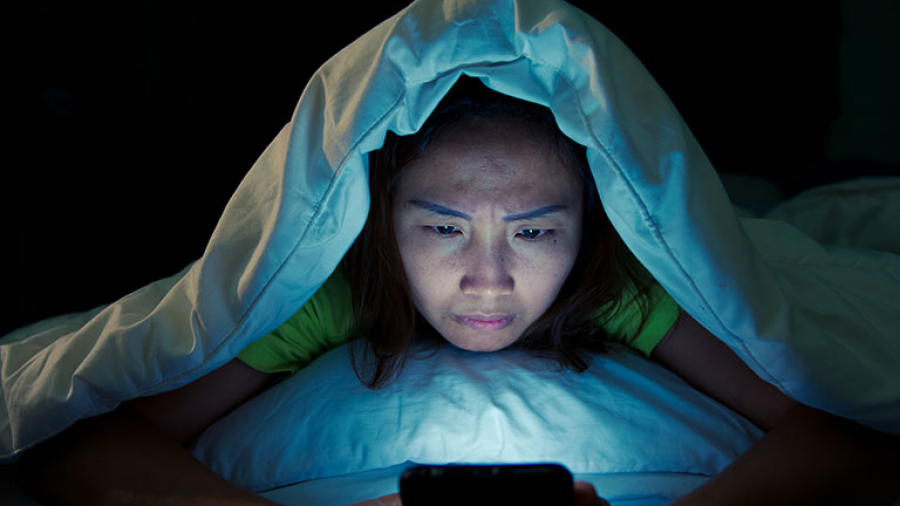Premature ageing is becoming more common with today’s hectic and unhealthy lifestyle. Despite being a minor issue to not lose your sleep over, premature ageing of the eyes is one that you should definitely avoid. Increased exposure to blue and ultraviolet (UV) light can prematurely age your eyes, leading to the development of cataracts, photokeratitis, macular degeneration, and other eye problems.
Sun damage is real
When we think about sun damage, we usually think of how UV rays harm our skin. However, it is equally crucial to examine your eye health in relation to this exposure. According to research, excessive UV exposure harms both the skin around the eyes and the eyes themselves. Excessive exposure raises your chances of developing cataracts, macular degeneration, and other potentially severe eye diseases. Recently, scientific evidence has emerged showing that UV or “blue light” may also be detrimental to ocular structures.
Damaging effects of screen time
Most of us spend a long time staring at screens by scrolling on social media, working long hours in front of laptops, or watching TV.
Excess screen time can be harmful to our eyes. Blurred vision, eyestrain, dry eyes, macular degeneration, and cataracts have all been related to blue light exposure from devices. In fact, some people even have difficulty sleeping due to this. In high amounts, high-energy light from the sun such as UV rays and blue light, can increase the risks of eye illnesses.
According to experts, digital eye strain, also known as computer vision sickness, affects around 50% of computer users causing common symptoms such as dry, itchy eyes and poor vision. Blue light may also potentially cause retinal damage, which is known as phototoxicity. The amount of damage is proportional to the wavelength and exposure period and only a filter that cuts 94 percent of blue light can reduce the harm.
Blue light and kids
Experts have warned against excessive screen time for young children, and it is for good reason. Kids’ eyes can’t filter blue light as well as adults’ eyes do. Too much of it from gadget screens may increase their risk of obesity, near-sightedness, and difficulty focusing. It may also cause their body to release melatonin more slowly which causes difficulty sleeping. To prevent these harmful effects, always limit your child’s screen time to safeguard their eyes. In addition, make them put away all electronic gadgets, including portable game devices, at least half an hour before sleep.
Where do blue light and UV light come from?
- Sun
- Digital screens
- Indoor lighting
- Electronic devices
Basically, they can come from ANYWHERE!
Safeguarding your eyes
There are other ways to improve eyesight apart from limiting exposure to UV and blue light.
One of the ways to safeguard our eyes is to get enough lutein and zeaxanthin from our diet and supplements. Lutein and zeaxanthin are powerful antioxidants that work as natural blue light filters by protecting our cells from photo-induced oxidative stress and free radicals by neutralising them. However, our body cannot produce lutein and zeaxanthin naturally and they will decrease with age.
A delicious and fun way to get your dose of naturally sourced of lutein and zeaxanthin is by consuming Gummy Vzio, a perfect 5:1 ratio of lutein and zeaxanthin, extracted naturally from marigold flowers through a unique purification process, and comes with a Tri-Action Eye Health Formulation that filters, protects and rebuilds your eyes naturally from the inside out.
By consuming Gummy Vzio, you can protect your eyes through 3 steps:
- FILTER harmful rays
- PROTECT cells from oxidative damage
- REBUILD damaged cells
References:
- Iliya V Ivanov. et al. (2018). Ultraviolet radiation oxidative stress affects eye health. J Biophotonics, 11(7), e201700377.
- S M Salvis. et al. (2006). Ageing changes in the eye. Postgrad Med J, 82(971), 581-587.
- Enrique Navarrete de Gálvez. et al. (2022). The potential role of UV and vlue light from the sun, artificial lighting, and electronic devices in melanogenesis and oxidative stress. J Photochem Photobiol B, 228, 112405.
Additional references:
- Eye Institute of Houston. (2016, June 8). Premature Aging Can Happen to your Eyes. Retrieved June 14, 2022, from https://www.eyeinstituteofhouston.com/premature-aging-can-happen-eyes/
- How Blue Light Can Affect Your Health. (2020, October 7). WebMD. Retrieved June 14, 2022, from https://www.webmd.com/eye-health/blue-light-health

